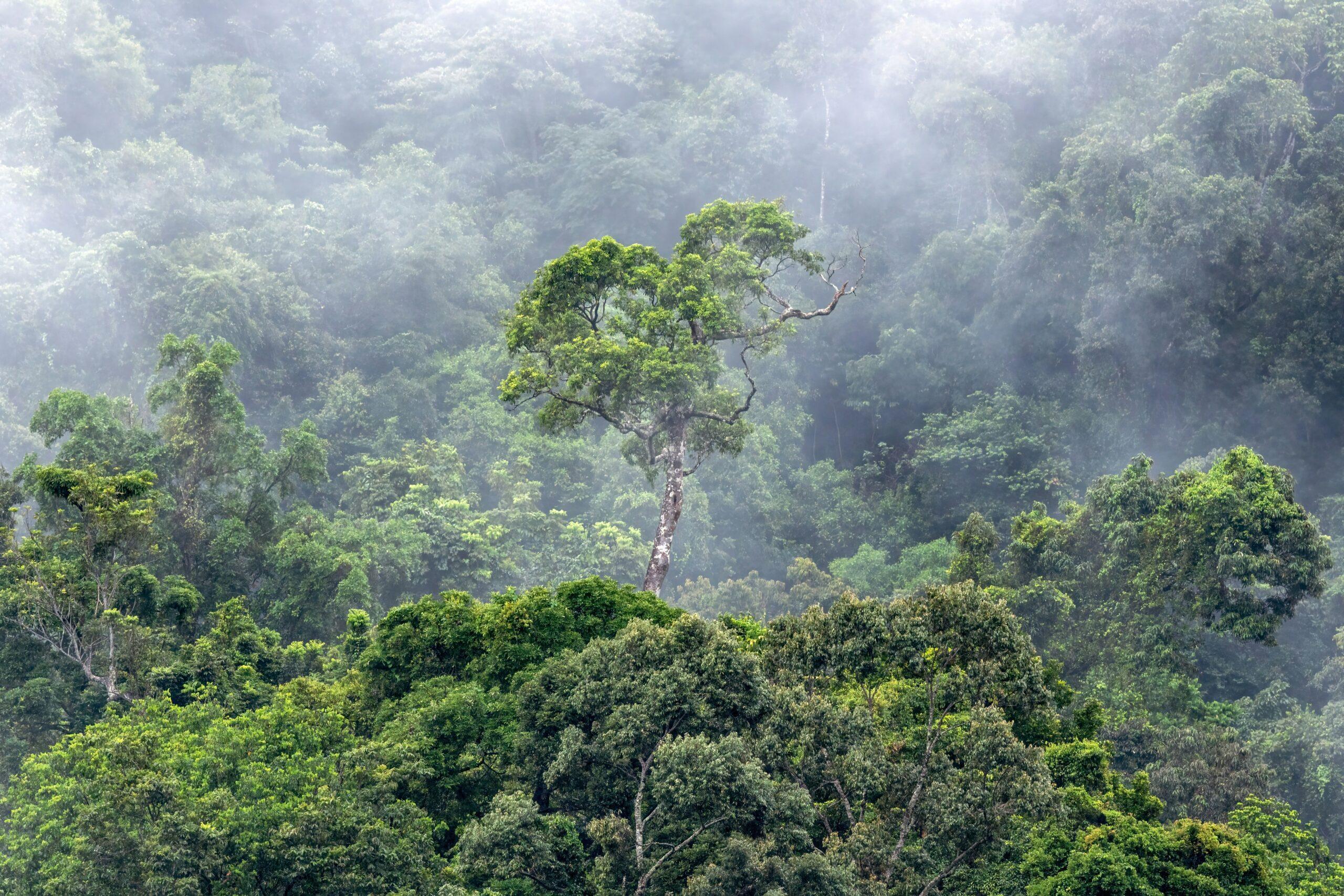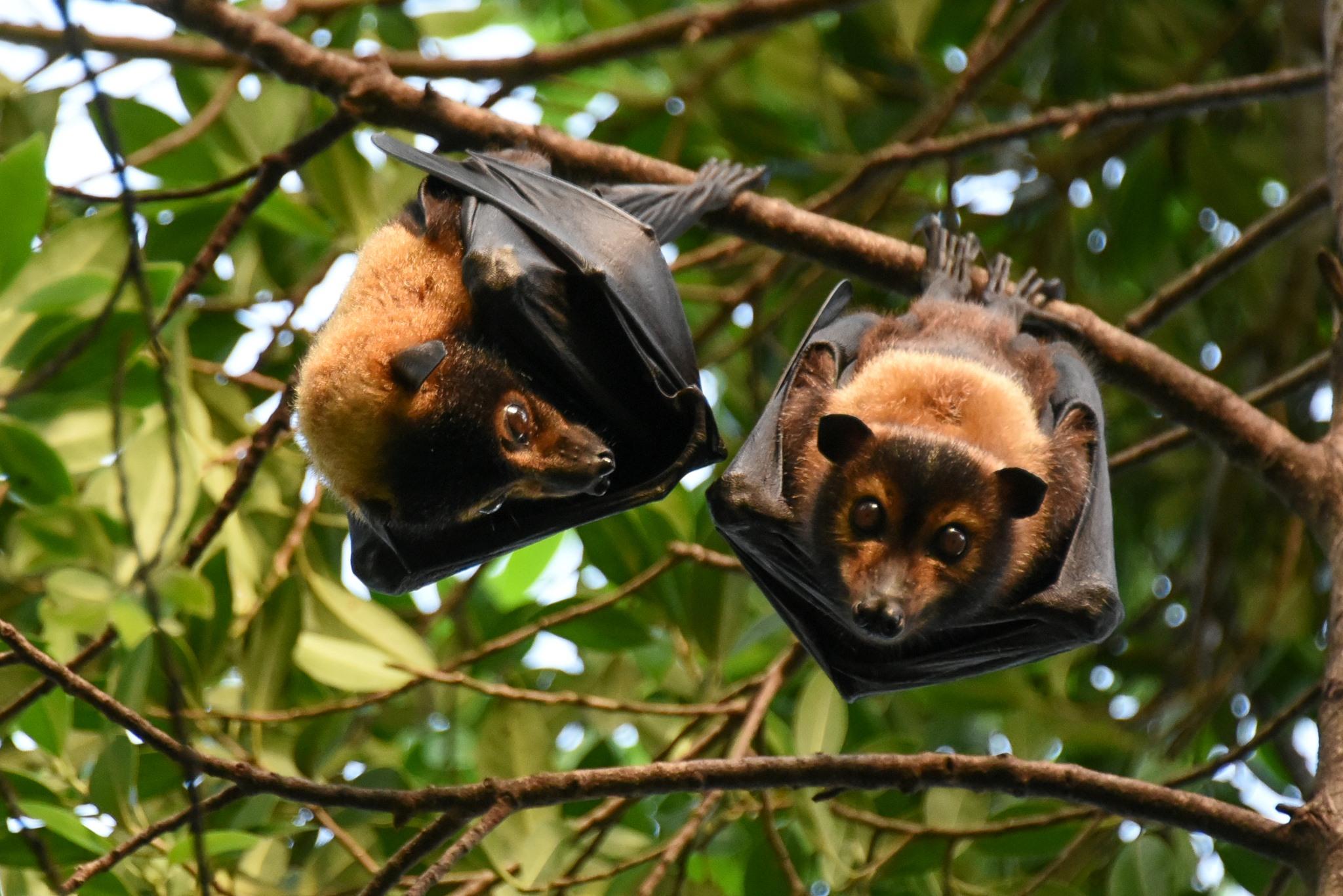7 June 2024
In a new hub-funded project, James Cook University scientists will be helping spectacled flying foxes survive heatwaves, after about one third of Australia’s population of the mammals died during hot weather in 2018.
JCU’s Professor Susan Laurance will co-lead the project, funded by Australia’s National Environmental Science Program’s Resilient Landscapes Hub. She said the spectacled flying fox has been listed as endangered since 2019.
“They are found in the Wet Tropics region and the rainforests of Cape York in northern Queensland and play an important role as key pollinators and seed dispersers.
“But they are vulnerable to mass mortality associated with extreme heat. An extreme heatwave in 2018 resulted in the death of over 20,000, approximately one-third of the population, leading to them becoming listed as endangered,” said Professor Laurance.

Spectacled flying foxes are found in the Wet Tropics region and the rainforests of Cape York in northern Queensland. Image: David Clode.
She said although extreme heat events are rare phenomena in the Australian Wet Tropics region, their frequency and intensity have notably increased in past decades.
“The funding will allow us to identify roosting sites where the flying foxes are most at risk and to refine the tools we have to forecast high-risk extreme heat events. We will also develop a plan of action for when the next one hits,” said Professor Laurance.
She said interventions might include water misting systems, moving the animals’ roosts, and revegetation designed to enhance the species’ chances of survival.
Professor Andrew Krockenberger, an animal physiologist with expertise in understanding the impact of temperature extremes, co-leads the project. He said when the 2018 heatwave hit there was a lot of variation in where animals died.
“We hope to address this with fine-scale research on how weather interacts with roosts at the local scale, and how interventions can be better focussed on key locations.
“Local government have developed action plans but this research will help to focus limited resources on where and when the threat is greatest and how best to respond,” said Professor Krockenberger.
The project will run until 2027.
This media release was first shared on James Cook University’s news page.

Spectacled flying foxes play an important role as key pollinators and seed dispersers. Image by Rollier CC BY-NC 4.0.
Want to know more about the Resilient Landscapes Hub's activities and our research into practical solutions to environmental problems? Stay informed about activities, research, publications, events and more through the Hub newsletter.
"*" indicates required fields